|
|
| |
|
| |

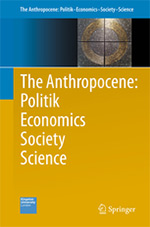
The Anthropocene
Politik – Economics – Society – Science (APESS)
Edited by
Hans Günter Brauch,
AFES-PRESS, chairman
Free University of Berlin (Ret.)
A Peer Reviewed Book Series
ISSN: 2367-4024
APESS
Vol 9 |
Heather Devere - Kelli Te Maihāroa - John P. Synott (Eds.): Peacebuilding and the Rights of Indigenous Peoples: Experiences and Strategies for the 21st Century (Cham– New York – Heidelberg – Dordrecht – London: Springer International Publishing, 2017).
ISBN : 978-3-319-45009-4 (Softcover)
ISBN : 978-3-319-45011-7 (Ebook)
Doi: 10.1007/978-3-319_ 978-3-319-45011-7 (add chapter no.)
Order this book on Springer Website |
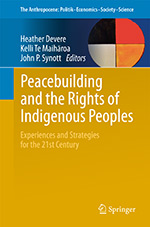
|
| |
|
|
On this Book
This book analyses perspectives for advancing the rights of Indigenous People within peace-building frameworks: Part I critically links issues of Indigenous Peoples Rights (struggles for land, human, cultural, civil, legal and constitutional rights) with key approaches in peacebuilding (such as nonviolence, non-violent strategic action, peace education, sustainability, gender equality, cultures of peace, environmental protection). Part II examines Indigenous leaders and movements using peace and non-violence strategies. Part III presents case-studies on the successes and challenges of peace perspectives in respect to contributions, developments, advancement and barriers to the recognition of the rights of Indigenous Peoples. Part IV investigates pathways to the achievement of Universal Indigenous Peoples Rights in the 21st century within the context of sustainable peace. This book confirms that peacebuilding approaches underpin significant achievements for the rights of Indigenous Peoples.
Introduction: Advancing Indigenous Peoples Rights Through Peacebuilding (John P. Synott)
Part I: The Pursuit of Indigenous Peoples’ Rights Through Political Processes in Contemporary Peacebuilding:
2 Reconciliation, Peacebuilding and Indigenous Peoples in Australia (Andrew Gunstone) -- 3 UN Declaration on the Rights of Indigenous Peoples in the Canadian Context: A Study of Conservative Government Rhetoric and Resistance (Kim Verwaayen) – 4 Pursuing Indigenous Self Government in Taiwan (Cheng-Feng Shih).
Part II: Cases of Traditional Peace Strategies and Nonviolent Actions Inspiring Campaigns for the Rights of Indigenous Peoples:
5 Regeneration of Indigenous Peace Traditions in Aotearoa/New Zealand (Heather Devere, Kelli Te Maihāroa, Maui Solomon, Maata Wharehoka) – 6 Peace is Like a River: Indigenous Psychologies of Nonviolence and the Thickening of Human Rights Ethics (Jeffrey Ansloos) ─7 Indigenous Conflict Resolution: Right to Justice and Diversity of the Indigenous Peoples of Bolivia (Fabiola Vidaurre Belmonte).
Part III: Challenges and Barriers to the Implementation of the Rights of Indigenous Peoples:
8 The Confluence of Two Rivers: Constitutional Recognition of Australia’s First Peoples (Asmi Wood) – 9 Empowering Tribal Communities towards Sustainable Food Security: A Case Study of the Purumunda Community Media Lab in India (Mousumi De) – 10 Indigenous People’s Struggle for Dignity and Peacebuilding in Northeast India (Leban Serto and Mhonyamo Lotha).
Part IV: Concepts and Practices Related to the 21st Century Achievement of Indigenous Peoples’ Rights within the Context of Sustainable Peace:
11 Indigenous East Timorese Practices of Building and Sustaining Peace (Sophia Close) – 12 Who is Sami? A Case Study on the Implementation of Indigenous Rights in Sweden (Guðrún Rós Árnadóttir) – 13 Regime of Marginalisation and Sites of Protest: Understanding the Adivasi Movement in Odisha, India (Jagannath Ambagudia) – 14 Conclusion: Peacebuilding Experiences and Strategies of Indigenous Peoples in the 21st Century (Heather Devere, Kelli Te Maihāroa and John P. Synott). |
On the Editors
 |
Heather Devere, Ph.D., is Director of Practice at the National Centre for Peace and Conflict Studies at the University of Otago in Dunedin, New Zealand. She is Pākehā (non-Māori) of English, Irish, Welsh and Spanish descent. She teaches conflict resolution and indigenous peace traditions as well as being responsible for the Masters internship programme. She supervises students studying a variety of peace traditions, as well as mediation, peace education, peace journalism and peacebuilding. Her doctorate from the University of Auckland was on women’s attitudes to political and civil rights. Her published research including articles related to the politics of friendship, peace journalism, refugee resettlement and transitional justice. She has also published widely on the politics of friendship, biculturalism, women studies and the media. She co-edited with Preston King The Challenge to Friendship in Modernity published by Frank Cass. Along with Preston and Graham M. Smith, Heather also edits AMITY: The Journal of Friendship Studies. She is involved in several community organisations including Dunedin Community Mediation, International Student Refugee Mission, Parihaka Network: Nga Manu Korihi, and the Rekohu Working Group.
Address: Dr. Heather Devere, Director of Practice, National Centre for Peace and Conflict Studies, University of Otago, P.O. Box 56, Dunedin 9054, New Zealand
Website: <http://www.otago.ac.nz/ncpacs/staff/otago014261.html>. |
| |
| Kelli Te Maihāroa |
Ko Aoraki te mauka teitei
Ko Waitaki te awa
Ko Uruao te waka
Ko Waitaha te iwi |
Mt Cook is the ancestral mountain
Waitaki is the river
Uruao is the ancestral canoe
Waitaha are the people
|
|
Nō Te Waipounamu ahau
Ko Te Maihāroa te rakatira
Ko Kelli Te Maihāroa ahau
|
I am from the South Island
Te Maihāroa is the chie
I am Kelli Te Maihāroa |
| |
|
Kelli Te Maihāroa descends from the Waitaha People and is the great granddaughter of the Māori prophet Te Maihāroa, the last prophet of the South Island, who led his people on a peace walk (Te Heke) to reassert their claim to land. She is a Lecturer at the University of Otago, College of Education in Aotearoa New Zealand and a mother of five boys. She works closely with her whānau (family) and iwi (tribe) on various events/ issues ranging from environmental protection to the preservation of cultural customs and resources. She is currently studying towards her PhD in the area of indigenous passive resistance and peace traditions. She works in the area of initial teacher education and has twenty years work experience within the health and educational sector, specialising in working within indigenous models of practice. She is the Secretary and Board Member for the Waitaha Tai Whenua Trust Board and is an Executive Committee member of the Inter-national Peace Research Association (IPRA) and of the Asia Pacific Peace Research Association (APPRA).
Address: Kelli Te Maihāroa, College of Education, University of Otago, P.O. Box 56, Dunedin 9054, NewZealand
Website: <http://www.otago.ac.nz/education/staff/kellitemaiharoa.html>. |
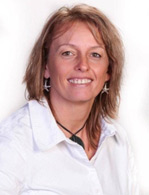 |
| |
|
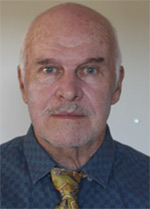 |
John P. Synott, Ph.D, is Adjunct Professor at the University of Sydney Centre for Peace and Conflict Studies and an online course professor in intercultural education at the UN University of Peace, Costa Rica. He was the Convenor for the Commission for the Rights of Indigenous Peoples in the International Peace Research Association (1996-2014) and Secretary-General of the Asia-Pacific Peace Research Association (2006-2010). He has held academic positions at Queensland University of Technology from 1988-2010 in the School of Humanities, the Oodgeroo Centre for Aboriginal and Torres Strait Islander Education and the School for Cultural and Policy Studies in Education, as well as academic positions at University of New England (Australia), Pusan National University. (South Korea), University of Papua New Guinea (PNG), and Universita Jaime I (Spain). With his B.A. (ANU) and Grad. Dip. Ed. (UNSW) he holds a Ph.D (Griffith U) in the Sociology of Social Movements, and a Grad. Dip. and Master’s degree in Aboriginal Education (UNE) and is a former member of the Australian Institute of Aboriginal and Torres Strait Islander Studies, with extensive teaching and research in Indigenous Education. He has published several books including Quality Education (2009), Global and International Studies (2008) and Teacher Unions, Social Movements and the Politics of Education in East Asia (2002) as well as many chapters and articles in the areas of peace education, development, globalisation and Indigenous Peoples. He was inaugural Editor of The Journal of Peace Education from 2003-2008, and a member of the editorial collective of Social Alternatives from 1992 to 2012, being principal editor on issues related to Peace Education and Globalisation. He is currently on the Editorial Boards of Journal of Peace Education, Social Alternatives, the Taiwan Journal of Indigenous Studies and the Asia-Pacific Journal of Teacher Education. He lives in Brisbane, Australia.
Address: Adj. Prof. Dr John P. Synott, Mackie Building, Centre for Peace and Conflict Studies, University of Sydney, Sydney, NSW 2006, Australia |
On the Contributors
| |
Jagannath Ambagudia, Ph.D., is Associate Professor at Tata Institute of Social Sciences, Guwahati Campus, Guwahati, India. He has a Ph.D. in Political Science from Jawaharlal Nehru University, New Delhi. Earlier, he taught at Rajdhani College, University of Delhi; National Law School of India University, Bangalore, Karnataka and ARSD College, University of Delhi. Jagannath has extensively published on various dynamics of Adivasi society, especially on the issues of social discrimination, social exclusion and inclusion, marginalisation, development and deprivation, preferential treatment, distributive justice and community conflict.
Address: Dr. Jagannath Ambagudia, Tata Institute of Social Sciences, Guwahati Campus, 14-A Bhuban Road, Uzanbazar, Guwahati-781, Assam, India.
Website:.
|
|
Jeffrey Ansloos, Ph.D., is an interdisciplinary educator, consultant, and psychologist with particular expertise in complex psychosocial trauma, indigenous perspectives in mental health, human rights, and the sociopolitical ethics of reconciliation. He is currently an Assistant Teaching Professor in the School of Child and Youth Care in the Faculty of Human and Social Development at the University of Victoria in British Columbia, Canada. Jeffrey Ansloos is of Cree and English heritage, and is a member of Fisher River Cree Nation, in Manitoba, Canada.
Address: Dr. Jeffrey Ansloos, School of Child and Youth Care, Human and Social Development, University of Victoria, P.O. Box 1700, STN CSC, Victoria BC V8W 2Y2, Canada.
Website:. |
| |
|
|
Guðrún Rós Árnadóttir is a Ph.D. student at the Department of Political Science at the University of British Columbia, Vancouver, Canada (2015-present). She holds an M.A. in Nationalism and Minority Rights from the Nationalism Studies Program at Central European University in Budapest, Hungary (2012-2014), and a B.A. in Political Science from the Political Science department at the University of Iceland (2008-2011).
Address: Ms. Guðrún Rós Árnadóttir, University of British Columbia, Department of Political Science, C425-1866 Main Mall, Vancouver, B.C., V6T 1Z1, Canada.
Website:. |
|
Sophia Close, Ph.D., is a researcher at the Australian National University’s National Centre for Indigenous Studies. She also holds a BA (Class IA Honours) / B Economics from the University of Queensland. She has worked with bilateral, multilateral, and non-government organisations and has field experience in the Asia Pacific region and Eastern Europe, most recently in PNG, Solomon Islands and Timor-Leste. Sophia’s research interests include Indigenous self-determination, peacebuilding and complex systems theory.
Address: Dr. Sophia Close, 69 Majura Avenue, Dickson, ACT 2602, Australia.
Website: |
| |
|
|
Mousumi De is an independent researcher and practitioner working with arts and media for peace education, conflict transformation and social development projects in India and other countries. She is an honorary research fellow with the Indian Institute of Sustainable development. Currently she is working as Associate Instructor and completing a PhD from Indiana University, USA. Her research interests include peace and arts-based education, peace building, conflict transformation, marginalized and minority communities.
Address: Ms. Mousumi De, Indiana University, School of Education, Curriculum and Instruction, 201 North Rose Avenue, Rm 3288, Bloomington, IN 47405, USA.
Website: |
|
Andrew Gunstone, Ph.D, is Professor of Indigenous Studies at Swinburne University. His research interests include the politics of reconciliation and the history of stolen wages. His recent books include Developing Sustainable Education in Regional Australia (2014) (ed.) (Monash Publishing), Reconciliation in Regional Australia: Case Studies from Gippsland (2012) (ed.) (Australian Scholarly Publishing (ASP), A Decade of Despair: The Howard Government and Indigenous Affairs (2010) (ed.) (ASP), The Government Owes a Lot of Money to Our People: A History of Indigenous Stolen Wages in Victoria (2009) (co-authored) (ASP), and Unfinished Business: The Australian Formal Reconciliation Process (2009) (ASP). He is the Founder and Editor of the Journal of Australian Indigenous Issues.
Address: Prof. Andrew Gunstone, Swinburne University, P.O. Box 218, Internal Mail H98, Hawthorn, VIC 3122, Australia.
Website:. |
| |
|
|
Mhonyamo Lotha, holds a Master of Theology (MTh) degree specialising in Church History and is currently a PhD Research Scholar in Peace Studies under Martin Luther Christian University (MLCU), Shillong, Meghalaya India, with the Research titled, ‘Traditional Peacemaking Methods of the Lotha Naga Tribe as tools for Peace Counts Initiatives in North East India’. Mhonyamo is actively involved as a Peace Trainer, utilising the Peace Counts Approach since 2013 - 2015. Mhonyamo belongs to the Lotha Naga tribe of India and is involved in teaching theological students and facilitating peace workshops with youth and ethnic community leaders in Nagaland, India.
Address: Mhonyamo Lotha, H.No 149, Upper Mount Tiyi College Colony, Wokha, Town Nagaland, 797111, India.
Website:. |
|
Leban Serto, Ph.D., is an Anthropologist and a Peace Educator/ Trainer. He has a broad range of teaching experiences with students, advocates and leaders of ethnic communities in Northeast India (NEI). Leban has conducted Peacebuilding workshops with ethnic Burmese students and others in Yangoon, Cambodia, Thailand and Costa Rica. He is currently a Freelancer for Berghof Foundation (Germany) for Peace Counts in NEI, Consultant, and is involved in Peacebuilding for Indo Global Social Service Society (IGSSS) in the Project – Peace Action in Conflict Vulnerable Areas of Bodoland Territorial Council and Karbi Anglong in Assam, India. Leban has also written several academic papers in the field of Peace Education.
Address: Dr. Leban Serto c/o Prof Ksh Bimola Devi, Department of Political Science, Manipur University, Canchipur-795003, Manipur, India.
Website: |
| |
|
|
Cheng-Feng Shih, Ph.D., is self-identified as Holo with maternal Hakka, Makato-Siraya, and Amis descents, the author is former Dean of the College of Indigenous Studies at the National Dong Hwa University. He is editor-in-chief, of the Taiwan International Studies Quarterly (2005-) and the Journal of the Taiwan Indigenous Studies Association (2011-). He is the author of twenty books in Taiwanese, including Taiwanese National Identity (2000), Indigenous Politics and Policy in Taiwan (2005), Indigenous Rights (2008), Ethnic Policy in Taiwan (2010), and Indigenous Sovereignty, Self-government, and Fisheries Rights (2014). His articles in English are located at http://faculty.ndhu.edu.tw/~cfshih/en_index.htm.
Address: Cheng-Feng Shih, National Dong Hwa University, P.O. Box 26-447, Taipei 10699, Taiwan.
Website: |
|
Maui Solomon is of Moriori descent, working to ensure that his people who faced occupation and exile from their homeland of Rēkohu (The Chatham Islands) can reclaim their identity, have land restored, and continue to uphold their pacifist traditions. Maui Solomon’s ancestry also includes Ngāi Tahu and Pākehā. He is a Barrister and Indigenous Advocate. He is currently the General Manager of the Hokotehi Moriori Trust on Rēkohu and is also an Adjunct Professor at the Simon Fraser University of British Columbia, and the past Chair of the Aotearoa New Zealand Peace and Conflict Studies Trust.
Address: Maui Solomon, P.O.Box 104, Waitangi, Rekohu (Chatham Islands), New Zealand.
Website: |
| |
|
|
K.J. Verwaayen, Ph.D., is Associate Professor in Women’s Studies and Feminist Research, and Chair of Graduate Studies in The Centre for Transitional Justice and Post-Conflict Reconstruction, at Western University in London, Canada. She works in the areas of contemporary Canadian women's literature, feminist literary theory, and Indigenous women’s writing; trauma and testimony studies; global and Indigenous feminisms. She is currently co-editing (with Wendy Pearson, Ernie Blackmore and Renée E. Bedard) First Women and the Politics of Looking: Gender, Indigeneity and Representation in Canada. She has recently published in Contemporary Women's Writing; Canadian Literature; a/b: Auto/Biography Studies; British Journal of Arts and Social Science, among others.
Address: Dr. K.J. Verwaayen, Department of Women’s Studies and Feminist Research, 3260 Lawson Hall, Western University, 1151 Richmond Street N., London, ON, N6A5B8, Canada.
Website:. |
|
Fabiola Stephanie Vidaurre Belmonte studied law at the Universidad Mayor de San Andres, La Paz. In 2009 she started working on dialogue and peace building at UNIR Bolivia Foundation and The Carter Center. In 2010, the UNDP invited her to present her experience with the Open Space Technology at the Methodological Forum of Dialogue and Conflict Transformation. While in an administrative position at the Municipal Government in 2012 - 2013, her area drafted three important laws: free access to municipal information, citizen participation and social control law. In 2013 the Korean International Cooperation Agency awarded Fabiola with a scholarship to study at Hankuk University of Foreign Studies in Seoul, South Korea and in 2015 she got her degree as Master of Arts in International Development. In 2014 she was invited to the 25th IPRA General Conference on “Uniting for Peace: Building Sustainable Peace through Universal Values” held in Istanbul, Turkey, to present her paper on Indigenous Conflict Resolution: Right to Justice and Diversity of the Indigenous peoples in Bolivia. Currently, she is working as Academic Responsible at the Postgraduate and International Relations Department at the Universidad Mayor de San Andres.
Address: Ms. Fabiola Stephanie Vidaurre Belmonte, 530 Ceciclio Guzman de Rojas St. – Sopocachi, Capricornio Blg 4C, Bolivia.
Website: |
| |
|
|
Maata Wharehoka represents Parihaka where a pan-Māori community used passive resistance to oppose European occupation, and whose people are now involved in a resolution process with the descendants of the occupiers. Maata’s iwi include Ngāti Kōata, Ngāti Kuia, Ngāti Toa, Ngāti Tahinga, Ngāti Apakura, Ngāi Te Rangi. She was the Kaitiaki of Te Niho o Te Atiawa Meeting House at Parihaka and has held a Māori Practice Fellowship at the National Centre for Peace and Conflict Studies at the University of Otago.
Address: Ms. Maata Wharehoka, 249b Mid Parihaka Road, Pungarehu RD35, Taranaki 4686, New Zealand.
Website: |
|
Asmi Wood, Ph.D, is a senior lecturer at the ANU College of Law and a practising barrister and solicitor. His research interests include Indigenous legal and spiritual issues, law and religion. He is a member of the National Indigenous Research and Knowledges Network (NIRAKN) funded by the Australian Research Council.
Address: Dr Asmi Wood, ANU College of Law, Building 5, ANU ACTON, ACT2600, Australia.
Website: |

On the National Centre for Peace and Conflict Studies,
University of Otago, Dunedin, New Zealand
The National Centre for Peace and Conflict Studies (NCPACS) is New Zealand’s first Centre to combine global cross-disciplinary expertise on the issues of development, peace-building and conflict transformation. The Centre was established at the University of Otago in 2009. The NCPACS is a post graduate theory, research and practice centre located within the Division of Humanities, University of Otago. It has a multidisciplinary faculty, research affiliates, visiting scholars and partner organisations from around the globe. Under the leadership of Founding Chair, Professor Kevin Clements, the faculty has established a world class reputation in the field.
The aims of NCPACS are:
- To build understandings of peace and conflict grounded in the experiences of people, places and history, and in ways that respect customary and local requirements for sovereignty, development, legitimate governance and wellbeing.
- To learn from dialogue, theoretical insight, international research and practical experience, including Aotearoa/New Zealand’s own experiences of Treaty partnership and engagement in international peacebuilding.
- To deliver high-quality postgraduate programmes at Masters and PhD levels.
- To conduct research on the causes of intrastate and international armed conflict; security, conflict resolution and post-conflict peacebuilding with special reference to the Asia-Pacific region.
- To provide expert advice and advanced-level short courses and training for government and non-government organisations engaged in conflict resolution, peacebuilding, development, humanitarian intervention, and policy making around the role of justice and good governance in sustainable peace.
- To engage in practical projects that build local capacities for sustainable development, community engagement, governance and conflict transformation in the Asia-Pacific region, and in Aotearoa/New Zealand’s own contexts.
- To facilitate evaluations and impact assessments of practical projects in the field.
- To advance the understanding and knowledge of conflict resolution processes by conducting state-of-the-art training in negotiation, mediation, and cross-cultural conflict resolution. The Centre has a large and growing cohort of New Zealand and international PhD students, many funded by University of Otago Scholarships and Rei Foundation Ltd Scholarships.
The Centre also offers a Master of Arts by thesis and course work Master of Peace and Conflict Studies, drawing students from a wide range of undergraduate disciplines. NCPACS Faculty and students are involved in a range of innovative research within Aotearoa-New Zealand, South East and Northeast Asia and conflict zones in Africa. The results of this are being published in a range of refereed journals and academic and commercial publishing houses. For more information about the Centre, its courses, scholarships and research go to www.otago.ac.nz/ncpacs.
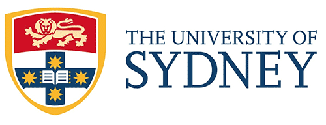 
On the Department of Peace and Conflict Studies,
University of Sydney, Australia
The University of Sydney’s Department of Peace and Conflict Studies promotes interdisciplinary research and teaching on the causes of conflict and the conditions that affect conflict resolution and peace. Research projects and other activities focus on the resolution of conflict with a view to attaining just societies.
The Department aims to facilitate dialogue between individuals, groups or communities who are concerned with conditions of positive peace, whether in interpersonal relationships, community relations, within organisations and nations, or with reference to international relations.
The Department is involved with the selection and awarding of the Sydney Peace Prize since 1998. Its most recent recipient in 2016 was human rights and climate change activist and author Naomi Klein. Previous recipients of this prestigious award include Archbishop Desmond Tutu (1999), Vandana Shiva (2010), Xanana Gusmao (2000) and Australian Indigenous rights leader Patrick Dobson (2008).
Other projects with which the Department of Peace and Conflict Studies includes the establishment of an Australian Peace Museum.
Profile and details of The University of Sydney Department of Peace and Conflict Studies is available from: <http://sydney.edu.au/arts/peace_conflict/>

The International Peace Research Association (IPRA)
Founded in 1964 during the crisis period of the Cold War, IPRA developed from a conference organised by the “Quaker International Conferences and Seminars” in Clarens, Switzerland, 16-20 August 1963.The participants decided to hold international Conferences on Research on International Peace and Security (COROIPAS), which would be similar to the Pugwash Conferences on science and world affairs, with a focus on nuclear disarmament.
A Continuing Committee established for the new body met in London, 1-3 December 1964. At that time, they took steps to broaden the original concept of holding research conferences. The decision was made to form a professional association with the principal aim of increasing the quantity of research focused on world peace and ensuring its scientific quality.
An Executive Committee was appointed. This group was also designated as Nominating Committee for a 15-person Advisory Council to be elected at the first general conference of IPRA, to represent various regions, disciplines, and research interests in developing the work of the Association. The first conference was held in 1965 in Groningen, Netherlands.
Since then, IPRA has held twenty-five biennial general conferences, the venues of which were chosen with a view to reflecting the association’s global scope. Thus it operates as a truly global NGO for academic researchers and educators across the general area of Peace Studies. From its early consolidation around European and more generally Western membership it has grown to become a cosmopolitan, globalised association with strong participation of women and members from all regions and cultures.
The core identity and purposes of IPRA are contained within its statutes. Article 2 states that IPRA “is a voluntary non-profit association of researchers and educators cooperating for scientific purposes”. Article 3 states that “the purpose of IPRA is to advance interdisciplinary research into the conditions of peace and the causes of war and other forms of violence. To this end IPRA shall undertake measures of world-wide cooperation designed to assist the advancement of peace research, and in particular:
- to promote national and international studies and teaching relating to the pursuit of world peace,
- to facilitate contacts between scholars and educators throughout the world,
- to encourage the international dissemination of results of research in the field and of information on significant development of peace research.”
Over half a century IPRA has become a prominent international association in pursuit of these goals and has been associated with a vast number of publications and research projects that have built the knowledge fields across different discourses of Peace Studies. It has been a pioneer in the links between research, education and activism in interdisciplinary projects, university courses and research centres.
The academic core of IPRA is the Commissions of which there are currently twenty-four, including the Commission for the Rights of Indigenous Peoples. The names and interest areas of the Commissions are: Art and Peace; Conflict Resolution and Peacebuilding; Peace Security and Development; Ecology and Peace; Migration and Peace; Gender and Peace; Global Political Economy; Indigenous Peoples’ Rights; Internal Conflicts; Human Rights and Human Security; Nonviolence and Peace Movements; Peace Culture and Communication; Peace Education; Peace History; Peace Journalism; Peace Negotiation and Mediation; Peace Theories; Media, Conflicts, Human Rights; Reconciliation and Transitional Justice; Religion, Spirituality and Peace; Security and Disarmament; Sports and peace; Youth and Peace; Peace Tourism.
Apart from the Commissions there is a world-wide network of regional associations affiliated with IPRA. Working from the same core principles, the regional Associations have their own internal structures and host their own conferences yet work closely with IPRA in their activities. Currently IPRA has five affiliated Regional Peace Research Associations:
- AFPREA – Africa Peace Research and Education Association
- APPRA – Asia-Pacific Peace Research Association
- CLAIP - Latin America Peace Research Association
- EuPRA – European Peace Research Association
- PJSA - North America Peace Research Association
One of IPRA’s valuable functions is as a roster organisation with consultative status to the Economic and Social Council of the United Nations (ESOC). In this role IPRA has potential opportunities to participate in advocacy, consultation and discussion on issues pertinent to the work of ESOC. These representatives also fulfil important roles through communications back to the IPRA regarding progress and status of various matters before ESOC.
Further information on these activities of IPRA, including membership opportunities, current conferences, newsletter and other activities can be accessed from the website of the International Peace Research Association at: <http://www.iprapeace.org/>
On the Commission for the Rights of Indigenous Peoples within IPRA
The Commission for the Rights of Indigenous Peoples was initiated at the IPRA Conference in 1996 and fully established in 2000. The focus of the commission has been the recognition of First Peoples, globally embracing over 350 million people, with a great diversity of cultures and distinctive ways of life and important knowledge systems. However, Indigenous Peoples have been historically invaded by colonial empires, bringing much cultural destruction and loss of traditional lands and in the modern period are commonly subordinated as minorities within nation states where they suffer the effects of development, marginalisation, environmental destruction and cultural hegemony.
Nevertheless, the world-wide movement of Indigenous Peoples to assert their human rights, gain land, cultural, political and economic rights, legal recognition, education, health and other forms of social equality has been an important movement in the international context. Often, Indigenous Peoples have been involved in internal-conflicts within states but have also celebrated their cultures and achieved important developments in securing their distinctive rights, as recognised by the United Nations Declaration of the Rights of Indigenous Peoples. This commission welcomes participation from Indigenous researchers, scholars and educators as well as all those working or interested in promoting the rights of Indigenous Peoples.
Information about the commission can be obtained from the current convenor Dr. Manjushri Sharma, Symbiosis Arts and Commerce College, Pune, India. Email: <manjushrisharma@hotmail.com> or from the IPRA Secretariat. |
|
|
|